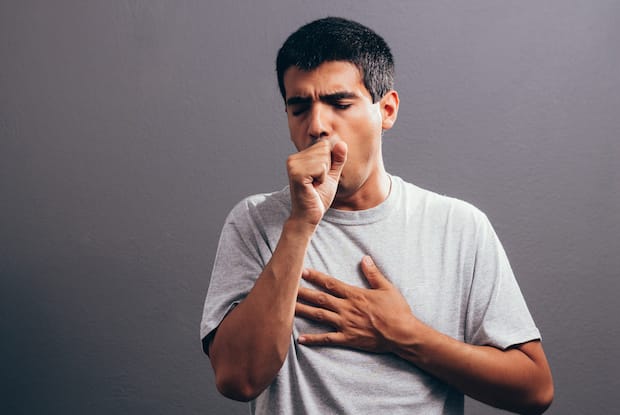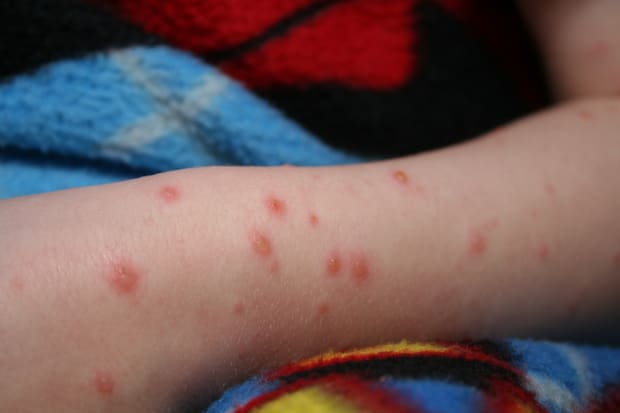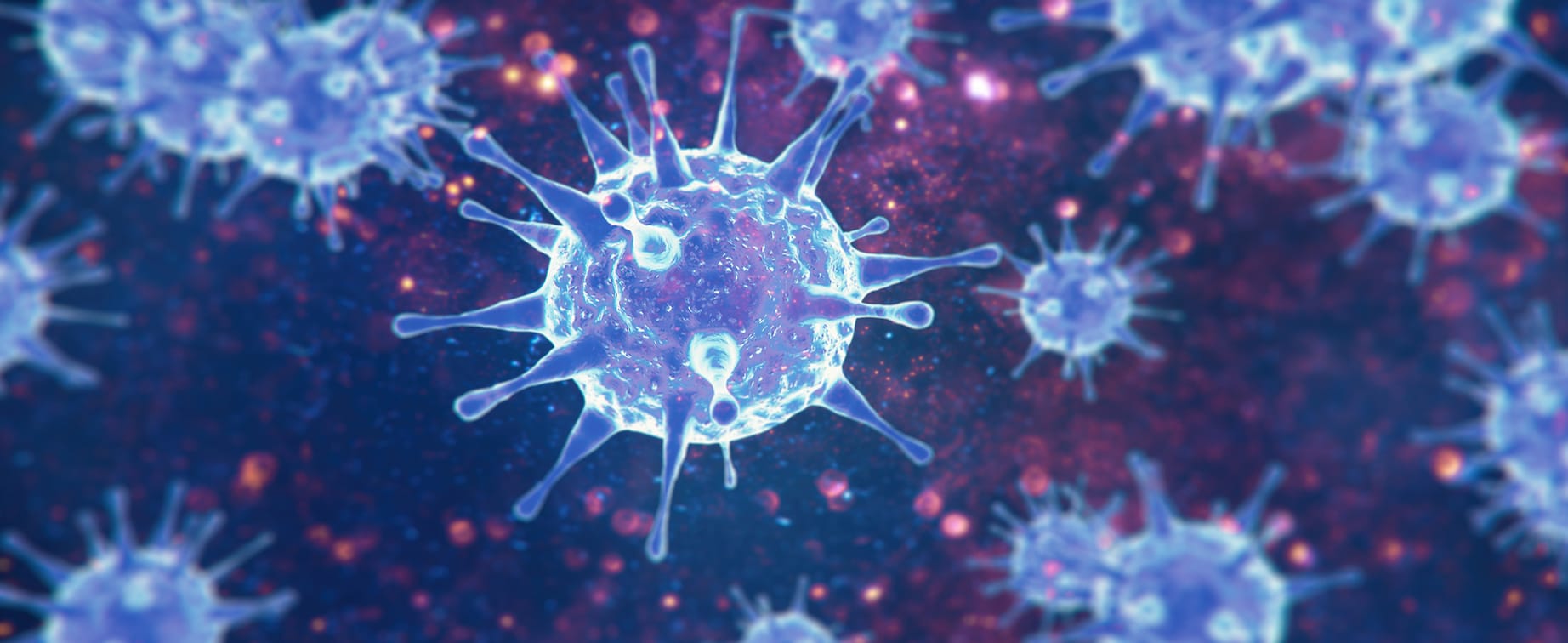Table of Contents
Overview
Almost everyone has had a viral infection during their life. The most common viral disease is the common cold. This is caused by a viral infection in your nose and throat and is typically very mild. Other viral infections can include chickenpox and shingles. Currently, we are in the midst of a worldwide panic because of another viral infection, COVID-19.
A virus is a small, infectious organism that can only reproduce after invading a living cell. Viruses enter a cell, release their DNA (or RNA) and then control the cell, forcing it to replicate the virus. The initial host cell usually dies, releasing more viruses, which then infect other cells. Not all host cells will die. Instead, some stay alive but are unable to complete their intended function. [1]
Many viral infections are contagious and can spread from person to person. Other viral infections may be spread through insect bites, exchanging bodily fluids, or ingesting contaminated foods or drinks. [2] Viral infections differ from other infections such as bacterial and fungal infections. Viruses are the smallest germ, which makes them the easiest to contract. Unfortunately, each virus is different, so there is no one effective treatment for all conditions. [3]

Keep reading to learn more about specific viral infections, including their causes, symptoms, and treatments.
Chickenpox
a. What is Chickenpox?
Chickenpox is a viral infection and is one of the most common illnesses during childhood. Around 95 percent of adults in the United States had chickenpox before they turned 18. However, the rate of infection in children is much lower today due to an available vaccine. [4]
Chickenpox is caused by the varicella-zoster virus and is highly contagious to people that have not been vaccinated or have not had the viral infection before. This virus is spread through contact with blisters or air droplets when the infected person coughs or sneezes. Anybody that has chickenpox should isolate themselves and avoid going to school or work. While the illness is usually mild for children, it can be more serious when contracted by teenagers, adults, or those with a weakened immune system. [5]
The most common symptom of chickenpox is an itchy blister rash. These rashes usually develop around ten to 21 days after you were first exposed to the virus. Once rashes appear, they normally last for five to ten days. The first sign of rashes may be pink or red raised bumps on the skin. These blisters may then leak. Finally, these blisters will crust and scab over before healing. The virus remains contagious until all of the blisters have scabbed over. As well as these blisters, other symptoms can include fever, headaches, loss of appetite, fatigue, and a general feeling of being unwell. These additional symptoms usually occur one or two days before the first rash. [6]
Often, chickenpox does not require medical treatment, although doctors may prescribe an antihistamine to relieve itching. Chickenpox can cause complications, including bacterial infections, pneumonia, brain inflammation, toxic shock syndrome, dehydration, Reye’s syndrome, and even death. If your doctor feels that you have a high risk of developing a complication, they may prescribe an antiviral drug such as Zovirax (acyclovir) or Valtrex (valacyclovir) to reduce the severity of the condition. [6] Shingles is a viral condition caused by the same virus that causes chickenpox: the varicella-zoster virus. After you have had chickenpox and the condition has subsided, the virus stays in your body, although it may not cause problems for many years. It is not known what causes the virus to reactivate, causing shingles. However, it is more common in older adults and those with a weak immune system. [7] While chickenpox causes itchy blisters, shingles cause rashes with shooting pain. A shingles rash is typically a single stripe on either side of the body. These rashes then turn into fluid-filled blisters and crust over after seven to ten days. Other shingles symptoms can include fever, headaches, chills, or an upset stomach. Shingles are not contagious. However, the varicella-zoster virus is contagious, and people who have never had chickenpox or the vaccine may catch chickenpox from someone with shingles. [8] There is no known cure for shingles. However, antiviral drugs can reduce your risk of complications and increase healing speed when the condition is treated promptly. Common shingles medications can include Famvir (famciclovir), Zovirax (acyclovir), or Valtrex (valacyclovir). Your doctor may also prescribe other medications to treat severe pain caused by shingles. The herpes simplex virus (HSV) is a different type of viral infection. There are two different types of HSV. HSV-1 usually causes oral herpes, including cold sores and facial fever blisters. HSV-2 primarily causes genital herpes. Both HSV-1 and HSV-2 are lifelong conditions, although most patients of both conditions do not show symptoms. HSV is a contagious virus that is transmitted through person to person contact. For HSV-1, this contact may occur directly such as kissing, or indirectly such as sharing lip balm or utensils. HSV-2 is contracted by sexual contact with someone that already has the virus. It is estimated that around 20 percent of sexually active American adults have HSV-2 infection. [9] The primary symptoms of the herpes virus are blisters. For patients with oral herpes, these blisters develop in or around the lips and mouth and are often called fever sores or cold sores. When these sores develop, they usually last for two and three weeks. [10] Genital herpes usually develops in or around the vagina, on the penis, buttocks, or anus, although they can develop in other areas. Genital warts tend to last for between two and six weeks. Other symptoms of an HSV-2 outbreak can include changes to vaginal discharge and painful urination. [10] Both types of HSV are treated with the same medications. Cold sores caused by HSV-1 typically clear up themselves without any treatment. However, using antiviral medications such as Famvir (famciclovir), Zovirax (acyclovir), or Valtrex (valacyclovir) can help speed up the process. Typically, oral medications are more effective than topical creams for treating cold sores. There is no cure for genital herpes, although prescription medications can help reduce the frequency of symptoms and can reduce the likelihood of transmitting the virus to another person. The same antiviral medications are most effective, including Valtrex and Zovirax. The content in this article is intended for informational purposes only. This website does not provide medical advice. In all circumstances, you should always seek the advice of your physician and/or other qualified health professionals(s) for drug, medical condition, or treatment advice. The content provided on this website is not a substitute for professional medical advice, diagnosis, or treatment.
b. How is Chickenpox Treated?
Shingles
a. What is Shingles?
b. How is Shingles Treated?
Herpes
a. What is Herpes?

b. How is Herpes Treated?
